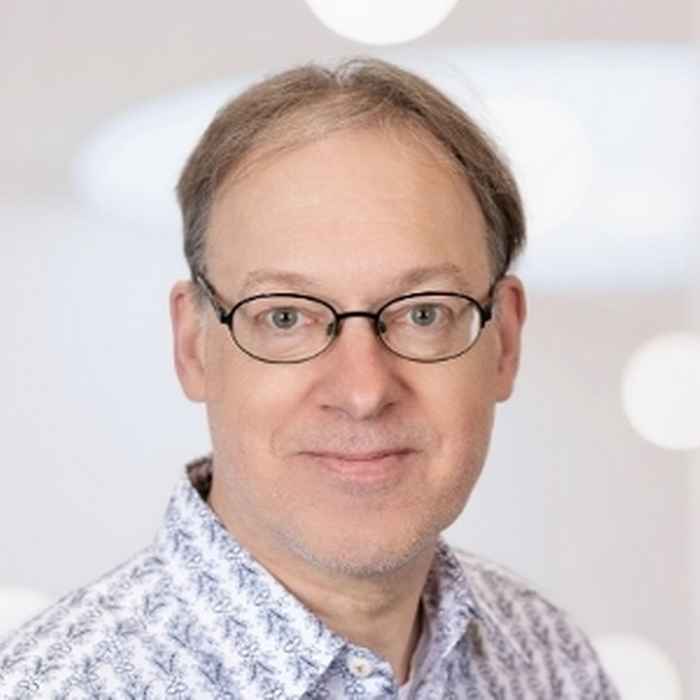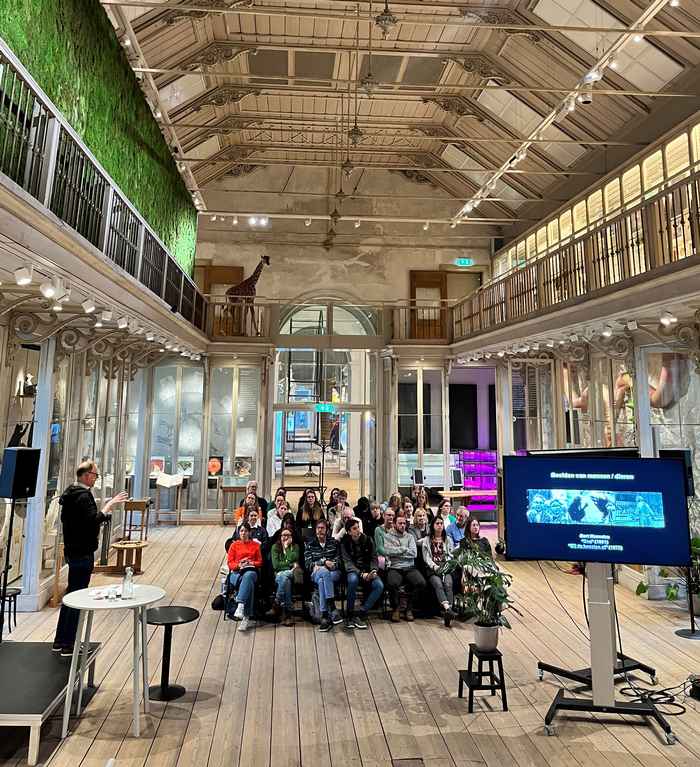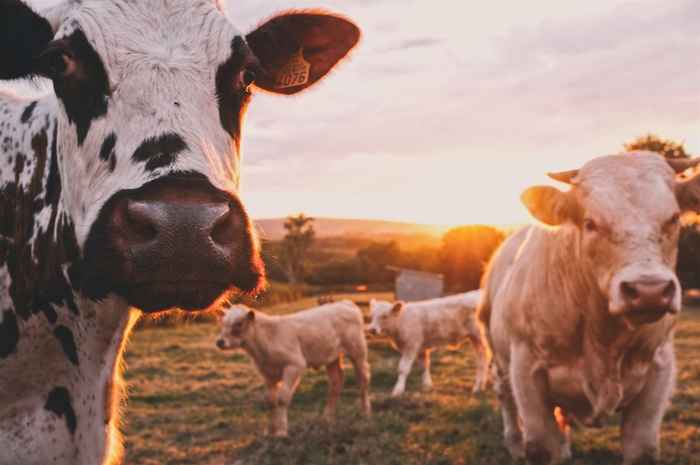IIS elective course on livestock visits the fields
"Though we're not saying everyone should become vegetarian"
6 June 2023

Our image of animals
Maarten Reesink is an eager storyteller who has a clear passion for animals. "In 2018, I started the Honours course Animal-Human Studies for IIS. This has grown into an IIS elective and is currently taught at Artis." Animal-Human Studies is about the relationship we have with animals. Caatje has been a student assistant for this course.
These courses certainly have things in common, but feature different angles. " First of all, the new course Food, Animals and the Environment only elaborates on our view of agricultural animals, no zoo animals, or pets." As a result, the course seems more specific than Animal-Human Studies, but is actually a lot broader. "Second of all, it also deals with the consequences of livestock, because these animals have many ecological and biological consequences."
Originally a media scientist, Maarten stumbled upon Animal studies, a cross-disciplinary look at our relationship with, and image of, animals, about 20 years ago. "In 2005, a student of mine was doing her thesis on wildlife films. There weren't many books on that within Media studies. Then I found out that these could be found within the then new field of Animal studies." Since then, this has been a subject Maarten has been involved with. "I always wanted to do something with animals myself, and originally wanted to study biology. At the UvA, biology was barely about animals and plants but instead about cells and microbiology. That didn't make me happy. When I discovered Animal studies, things suddenly clicked again"

Cornering the bio-industry
The course Food, Animals and the Environment will be taught for the first time next year. "With this course you are in the middle of the societal crisis we are constantly talking about: climate change and livestock farming. We have to think about how to deal with production animals differently." Within this social discussion, the focus is often on the ecological, but the ethical side of keeping for animals is almost not discussed.
Yet in recent years there has been a growing political focus on this. "When the Party for the Animals entered parliament fifteen years ago, there was a lot of joking about it. We are past that phase now. We have become a lot more conscious of animal welfare in the past decade, despite the fact that the bio-industry has increased in that time." Within the course, this remarkable contradiction will also be addressed. "We are quite sensitive about our pets, but most people don't have a problem with factory farming as long as you don't see too much of it." So the sudden popularity of the Farmer Citizen Movement is actually surprising. Perhaps it has little to do with our perception of the bio-industry. "That's food for political scientists. The question here is whether people vote for it because of their idea of animal welfare, or whether it is a sign of other social developments."

From class to cattle
Maarten is already very much looking forward to discussing this with the class. "On the one hand we can talk about better animal welfare and climate, on the other hand the practical implications thereof. It's a fierce discussion where theory and practice are opposite each other, and which we as a society will have to act upon quickly."
This course literally brings those two aspects of the discussion together through a series of field trips. "One time we will visit a care farm which houses animals 'rescued' from bio-industry. Usually these animals end up on such a farm through animal protection, sometimes there are farmers who regret the bio-industry and want to keep these animals differently, or even shelter them." The second excursion is at a Natura 2000 area near an industrial livestock farm. This shows the consequences of livestock farming on the surrounding nature.
The course is not meant to preach to students. "We do not say that everyone should become vegetarian or vegan, but look at it reflectively: what are the consequences of the current state of affairs. Everyone can draw their own conclusions from that and apply them in later careers."
The course Food, Animals and the Environment will be taught for the first time next academic year and was developed by Caatje Kluskens in collaboration with Maarten Reesink. Second- and third-year undergraduate students can apply from June 19, 2023.